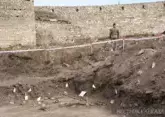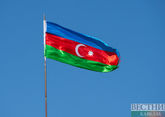The meetings between the Armenian and Azerbaijani top diplomats did not lead to any progress in resolving the Karabakh conflict. The rhetoric of the parties is gradually returning to the previous positions characteristic for the negotiation process of recent decades.
By tradition, the Armenian side does not want to assume responsibility for implementing specific agreements, stressing "Azerbaijan’s unwillingness to compromise”. In turn, official Baku recalls the long-term occupation of its territories, noting that the artificial delay in the conflict resolution cannot last forever. But Yerevan ignores this, focusing on information misguiding of the Armenian society with the help of historical myths.
On Tuesday, during the annual meeting of Armenian ambassadors and heads of consular services, Prime Minister Nikol Pashinyan stated that the "etymology of the problem" provides legitimization of the current status of the former Nagorno-Karabakh Autonomous Oblast (NKAO). According to the Armenian Prime Minister, at the time of the Soviet Union collapse, Nagorno-Karabakh was a sovereign entity, thus, its withdrawal can be compared to the withdrawal of Azerbaijan from the USSR. A similar version of the story was previously voiced by Armenia’s ex-president Robert Kocharian (who is on trial currently) at the June 2004 session of the Parliamentary Assembly of the Council of Europe. It appears the republic’s leadership has never seen the official regulatory documents of the Soviet period, according to which the formation and long-term existence of the NKAO as a subject of the Azerbaijan SSR were provided by the Soviet law.
The status revision was possible according to the Constitution of the USSR ensuring the existence of all national autonomies. If we take into account that from the moment the USSR ceased to exist, Karabakh as the Soviet autonomy also ceased to exist, then it was not recognized as an independent entity either, since the legal change of the autonomy status corresponding to the principles of international law was carried out neither before nor after the USSR collapsed. In other words, until the abolition of the USSR, Nagorno-Karabakh officially had been Azerbaijan’s subject, and participation of the self-proclaimed regime representatives in the signing of the 1991 Belovezha and Almaty Accords, confirming the termination of the existence of the Soviet Union, cannot be traced in any way.
Accordingly, the actual formation and ensuring the existence of the current self-proclaimed status of Karabakh became possible exclusively through armed aggression. Naturally, the Armenian Prime Minister did not go into details or mention this.
Today, the Armenian political elite forms the image of mono-ethnic Karabakh. Given the diversity of the Armenian diaspora, whose representatives live in different countries, with a different economic situation, culture and geopolitical status, occupied Karabakh serves as a platform for carrying out an all-Armenian idea in the country’s foreign policy. For this purpose, the trinity of Armenia is declared, acting as a locomotive of self-proclaimed Karabakh and diaspora being the main sponsor. Yerevan diplomats prefer to justify Karabakh’s belonging to exclusively Armenian culture and history by the mono-ethnicity of the former autonomous region, including a referendum, without mentioning the most difficult situation in the field of security, propaganda and politics that Azerbaijani population of the region found itself in during 1988-1994. This casts doubt on any arguments in favor of democratic procedure for formalizing an unrecognized regime.
The current position of Yerevan almost identical to the position of the previous administrations of Robert Kocharyan and Serzh Sargsyan, and the Armenian diplomats do not particularly hide this. On August 27, at the opening of the annual congress of the central apparatus heads of the Ministry of Foreign Affairs, the head of the ministry, Zohrab Mnatsakanyan, named the main principles of the country's foreign policy: sovereignty, pan-Armenianism and interaction. He also noted that the statement of the Armenian Prime Minister does not imply a change in Yerevan’s approach to the resolution of the Karabakh conflict. In fact, the Foreign Ministry recognized the continuity of the previous foreign policy, noting that it only needs rebranding. Yerevan once again announced its intention to include occupied Karabakh in Armenia, the recognition of which for Armenian politics is nothing more than a formality on the way to the territorial expansion that is de facto carried out at the expense of the neighboring state’s territory.
Yerevan's approach does not imply any compromise. Its emphasis is shifted towards satisfying the interests of one side, not taking into account Azerbaijan’s issues of territorial integrity, the general problem of internally displaced persons, and compensation for the victims. Yerevan considers itself exclusively as a party that has suffered significantly as a result of the conflict. However, it is not clear whether the republic will have enough strength to carry out the planned reforms, given that Yerevan does not mention the prospects of any post-crisis cooperation between Armenia and Azerbaijan, stably adhering to the principles of partition.










